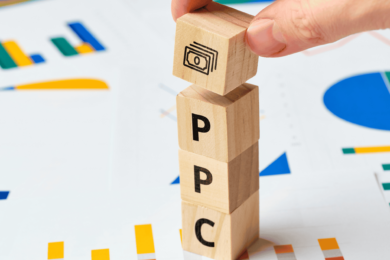Five Marketing Predictions for 2025
Jan 2, 2025By this point, most marketers have become accustomed to the never ending whirlwind of change and evolution in the digital…

By Jim Keeble, SEO Account Manager at Extramile Digital.
Launching an international website, without the help of experienced developers, can lead to dips in organic performance, less traffic and general stress.
There are a variety of ways to make sure your international website is launched perfectly with a perfect SEO migration while maintaining rankings and user experience.
We’ve got our heads together on our top tips to create a guide to making sure your global website launch is smooth sailing with no performance issues after go-live.
Within the slug of a URL, markers can add a country-related folder (like /en/ or /es/) which has its own corresponding sitemap and content within. This site structure requires less technical setup compared to country-specific domains and the authority of the corresponding folders inherit the domain authority of the main domain. This can lead to a more positive SEO performance than having to develop separate link building strategies for separate domains.
Having a sub directory within a specific domain can also be a cheaper and more efficient way to host multilingual content, depending on your current hosting setup.
The correct formatting of subdirectories is crucial for launching the perfect international website.The ideal structure involves a clear and consistent hierarchy that accurately reflects the content within each subdirectory.
When we develop websites, we prioritise the use of language codes and region codes in your subdirectory structure. Language codes should adhere to the two-letter standard (e.g., en, fr, de), while region codes should follow the alpha-2 format (e.g., GB, US, CA). This standardised approach ensures that search engines can easily identify the language.
The global recognition of .com domains helps a business to operate on a global scale and can act as a trust signal for clients and customers from all over the world.
A .com domain can contribute to a website’s perceived authority. It signals a broader reach and a more established online presence, essential for building authoritativeness in your brand. This, in turn, helps to establish a strong position within different target markets.
In native language and sub directory content, the importance of language and hreflang tags cannot be emphasised enough. They help to remove duplicate issues while connecting translated content.
The correct use of language tags help search engines to understand where a website’s content is supposed to be targeting. The language and region specifications help search engines to deliver more relevant results to their users. Search engines are built on serving the correct content, every time, and websites tagging language content correctly is imperative to this.
Further to this, using language tags properly helps to prevent duplicate content penalties by search engines. Telling a search engine bot that one page is English and the identical text, with translations, is Spanish can help with getting pages de-indexed because of duplicate content.
By clearly indicating the language of a page, the usability of the website is improved considerably. It helps users to find their target language quickly and efficiently. On this, language tags are essential for accessibility tools like screen readers. This means that these devices can serve accurate language content to visually impaired people.
By submitting sitemaps for each region of your website, you significantly improve your chances of ranking well in search engine results and providing a better user experience.
The improved discoverability of pages, thanks to the sitemap submission, can have a positive impact on a search engine bot’s crawling efficiency. This will improve accuracy means quicker indeed, better site health and, subsequently, better rankings.
It’s important to make access to the language variations as easy as possible, a flag in the top corner usually does the trick making it easy to flick between versions. Categorising the content efficiently for search engines to scrape and with sub directories in place, your global website is just waiting to go from strength to strength.

By this point, most marketers have become accustomed to the never ending whirlwind of change and evolution in the digital…

Case studies are a great tool for social media marketing. They showcase real results, build trust with potential customers and…

PPC advertising is one of the most effective ways to put your business in front of the right audience at…

Email marketing continues to be a vital tool for businesses to connect with their audiences, but the landscape in 2025…